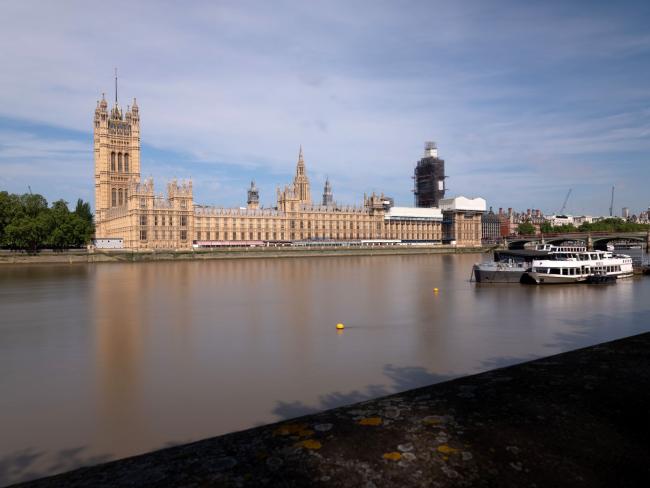(Bloomberg) -- The U.K.’s House of Lords rejected government plans to break international law over Brexit, putting the onus back on Prime Minister Boris Johnson, who has vowed to push ahead with the legislation.
Peers voted on Monday to remove the most controversial parts of the Internal Market Bill, which gives ministers the power to unilaterally rewrite parts of the Withdrawal Agreement Johnson signed with the European Union.
The legislation has prompted the EU to take legal action just as the two sides are locked in negotiations to strike a trade and security deal. But the prime minister has shown no sign of backing down over the plan, which the government has conceded will break international law in a “specific and limited” way.
“How can we reproach other countries -- Russia, China, Iran -- if their behavior becomes reprehensible when we ourselves have such scant regard for the treaties we sign up to?” Michael Howard, who used to lead Johnson’s Conservative Party, asked the Lords. “What sort of a precedent is the government setting?”
Peers voted by 433 to 165 and then by 407 to 148 to remove clauses that would allow ministers to redraw parts of the Withdrawal Agreement.
Johnson has argued the measures are needed to defend the integrity of the U.K.’s internal market, and is likely to overturn the changes to the bill when it returns to the House of Commons. The unelected upper house can only delay the legislation, not block it.
The bill would give ministers the power, if no trade accord is reached, to waive tariffs on goods traveling from the mainland to Northern Ireland, something that would upset the delicate compromise Britain and the EU reached during the negotiations to leave the bloc.
Johnson agreed then to levy tariffs on goods moving into Northern Ireland that were at risk of being moved south and into the EU as the price for avoiding customs checks on the border with the republic.
Cabinet Office Minister Nicholas True said the clauses provide a “safety net” for the government and insisted it is committed to the Good Friday Agreement, which brought an end to the conflict in Northern Ireland, and does not want to see a hard border with Ireland.
“The rule of law is a fundamental element in our constitution, but so is the principle of Parliamentary sovereignty,” True told the House of Lords. “It is permitted for any government in pursuit of the national interest to ask Parliament to legislate to authorize its acting in a manner that would be lawful in domestic law even if unlawful in international law.”
EU Considering Next Move Over U.K.’s Lawbreaking Brexit Bill
©2020 Bloomberg L.P.

